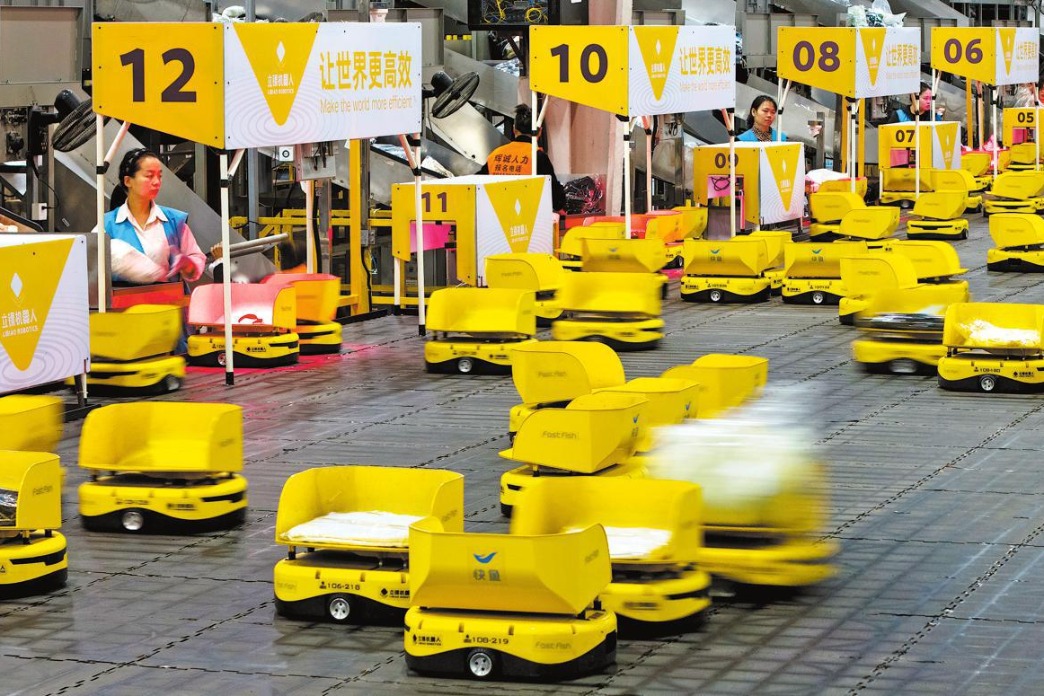EU betraying its proclaimed principles: China Daily editorial

Responding to the European Commission's reported exploration of ways to force EU member states to phase out Huawei and ZTE from EU telecom networks, China has urged the European Union to provide a fair, transparent and nondiscriminatory business environment for Chinese companies, and to avoid harming the confidence of these companies in their investment in Europe.
Foreign Ministry spokesperson Lin Jian said in Beijing on Tuesday that limiting or banning companies' access to the market through administrative means without any legal grounds or factual basis severely violates market principles and the rules of fair competition. As he pointed out, turning trade into security and political issues hinders technological progress and economic growth, and "will do no one any good".
Experience has demonstrated that the removal of Chinese telecom companies' secure and quality equipment not only impedes countries' domestic technological development, but also results in heavy financial losses.
Chinese companies have been doing business in Europe in accordance with the law, providing quality products and services to the European people, and making contributions to local socioeconomic development and employment.
Restricting market access for Chinese companies without solid legal or factual justification not only contravenes market principles, but also risks undermining the very foundation of fair competition that the EU prides itself on.
The EU always claims that it remains committed to free and fair trade, because one out of every seven jobs in the EU depends on trade with the outside world. And it claims it maintains an equal playing field for all companies and products, insisting it favors openness and rejects protectionism. Yet what the EU has done recently concerning Chinese companies belies its claims and serves only as an example of hypocrisy.
According to reports, the European Commission has singled out Huawei and ZTE as "high-risk" vendors and is planning to make it legally binding for EU member states to phase out equipment from the Chinese companies from telecommunications networks in Europe, on the spurious grounds that they pose national security threats. These allegations are unsubstantiated. In fact, the Chinese companies in Europe have always complied with EU regulations and endured over-zealous scrutiny that hampers normal business operations.
By adopting shortsighted trade and technology policies that antagonize its major trading partner, the EU is harming the interests of Chinese enterprises in a misguided attempt to align the EU with the "de-risk" strategy peddled by some anti-China politicians, which harms its own interests.
Besides, dismantling existing telecommunications facilities related to Huawei and ZTE and replacing them with European-made equipment will incur substantial economic and customer-related costs. For instance, Germany alone faces an estimated cost of 2.7 billion euros ($3.12 billion) to remove Huawei equipment from its telecom sites, with Deutsche Telekom projected to spend 1.2 billion euros. Belgium and the Netherlands, which rely heavily on Huawei for 4G and 5G networks, face similarly steep transition costs. The lack of a unified EU compensation framework exacerbates the strain.
The latest EU move flies in the face of the commitment it has made to deepen China-EU relations, manage differences in a constructive manner and achieve more positive outcomes in bilateral cooperation.
China's policy toward the EU has always been consistent and clear. The country views the EU as a partner and seeks to develop China-EU relations from a strategic and long-term perspective. The current challenges facing the EU do not come from China, and there are no fundamental conflicts of interest or geopolitical contradictions between the two sides.
Hopefully, Brussels will not let the mutually beneficial China-EU relations be hijacked by some politicians' misjudgment, and work to ensure that the EU remains open to Chinese trade and investment. It should promote balanced, reciprocal and mutually beneficial cooperation instead of adopting restrictive and protectionist measures.


































